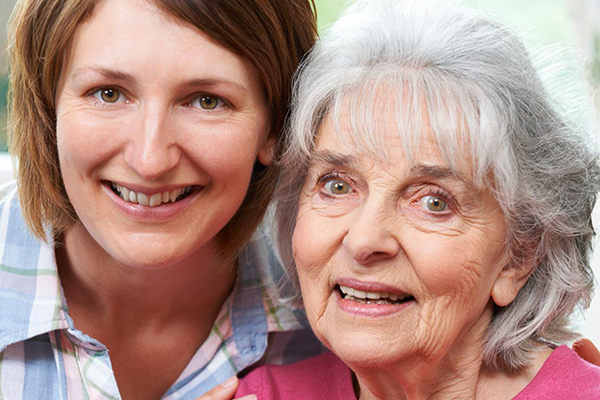When a loved one needs assistance during a recovery or long battle with an illness, we often put their health above everything else. November is National Family Caregivers Month and Julia Gauvey, MSW, LSW, has some important warnings and guidance for those impacted by the demands of supporting a friend or family member in their time of need.
Caregiver stress is something that many people experience but few talk about. In-home caregiving has increased as the baby boomer generation has aged. Assisting a loved one does have many rewards; you’re able to help someone you cherish, you are often permitted to stay in an environment that both of you feel comfortable in, and you reap the reward of quality time. But it also has a downside. We are observing an increase in stress for the caregiver.
Females are at a higher risk for stress as a result of giving care. There is also a higher tendency for stress with any caregiver experiencing:
-
Social isolation
-
Financial difficulties
-
Lack of coping skills and mechanisms
-
Having no choice in becoming the caregiver
Signs of caregiver stress include:
-
Feelings or thoughts of being totally overwhelmed
-
Tired most of the time
-
Extremes
-
Sleeping too little
-
Sleeping too much
-
Not feeling hungry
-
Feeling hungry all of the time
-
Feelings of not having the ability to move
-
Feelings of hyperactivity or inability to slow down
-
-
Becoming irritable or becoming angry easily
10 Tips for Caring for the Caregiver
1) Talk about your stress with someone you can trust, like a close friend, counselor, family member or a caregiver support group.
2) Eat nutritional meals daily.
3) Exercise to help lower your stress level.
4) Sleep and rest whenever you get a chance. The dishes can wait!
5) Accept help from those closest to you. It is easier for them if you can tell them what needs done (dishes, laundry, cooking etc.).
6) Don’t be afraid to take help when someone offers. If a neighbor or friend asks you if they can help once again be specific on what you need help with the most.
7) Allow yourself some time for respite. Go to a movie, get a book, take a walk and allow someone else to take care of your loved one for that short period of time.
8) Join a support group. There are groups available in the area. Contact Aging and In-Home Services to find one that is close to your area at 1-800-552-3662.
9) Go to your primary care physician and keep up to date on your own health and wellness needs.
10) Most important, realize that you are not alone and there are things that you can control. You can’t pour from an empty cup, so take care of yourself first!
“Be strong enough to stand alone, smart enough to know when you need help, brave enough to know when you need help, and brave enough to ask for it.” – Mark Amend





